How Many Words Does an 18-Month-Old Know? When parents find themselves wondering about their toddler’s vocabulary at 18 months, the first question often revolves around what’s happening right now versus what might emerge later. Here’s something most clinicians won’t tell you upfront: the milestones we discuss aren’t just about counting words; they’re about recognizing how children develop their foundational language skills through both expressive and receptive language. Every child navigates this journey differently, and while validated, standardized language screeners might suggest a single perfect number, the reality involves a broad range of normal, where some kiddos sit at the low end, others at the high end, and many somewhere in the middle.
What matters most is whether your little one is steadily adding new words, experimenting with communication, and showing that they’re developing typically rather than getting stuck at one stage. The American Speech-Language-Hearing Association (ASHA) notes that around 18 months of age, toddlers might say approximately 20 words, though this average number exists within a wide range of normal, where some use fewer than ten words while others surprise you with over 100, and both scenarios can reflect healthy language development.
The distinction between what a child can understand versus what they actively use tells us far more than any checklist ever could. Before 18-24 months, many toddlers understand simple directions like “go get your shoes” or “throw this away,” and they’ll turn their head when you say their name, point to familiar objects when named, or respond to familiar routines like “time to eat” by going to the kitchen. This understanding of language—what we call receptive language—is crucial because children can’t use words they don’t know the meaning of. Assessment tools and professional experience consistently show that toddlers who can identify four body parts, find several objects like “shoes, cup, ball,” or name five pictures (dog being a common one) are building the re-language skills we need to set in place before the verbal explosion happens.
Meanwhile, their expressive abilities might include single words used regularly, jargon mixed with actual language, and perhaps some two-word phrases like “more juice” or “bye-bye” that emerge as they’re transitioning from babbling to using actual words. The bell curve of language development milestones varies significantly from one child to another, meaning your 18-month-old might babble expressively while their blossoming vocabulary is still developing, or they might already be combining two words to create varied sentences—both paths deserve attention, not panic.
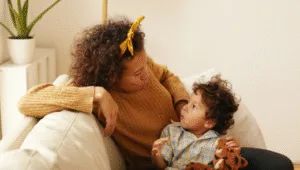
Developmental Speech Markers for Toddlers at 18 Months
When parents question how many words does an 18-month-old know, they often encounter 15 different answers from 15 different website sources, creating inconsistencies that prove confusing. The AmericanAcademy of Pediatrics and Mayo Clinic offer guidelines suggesting that children at this age typically produce their first word anywhere from 9 to 16 months, with variation in the timeframe being completely normal. An Early Childhood Interventionist might explain that recognizable words emerge as part of the child’s overall growth, where simple, one-syllable words, such as “mama,” “dada,” or “baba,” mark the beginning of their ability to communicate verbally.
How many words does an 18-month-old know becomes less about hitting exact numbers and more about observing whether your toddler’s babbling shows clarity and intentional speech sounds with both vowels and consonants. This exciting yet overwhelming phase represents an integral part of language development, where typical language milestones aren’t common question material that deserves anxiety, but rather celebration.
Understanding how many words does an 18-month-old know ranges broadly—some say fewer than 20 words, others say more than fifty—helps focus attention on what truly matters: whether they’re recognizing, imitating, and eagerly attempting to expand their vocabulary as they grow older. Regarding whether a lisp is a speech impediment, this articulation pattern isn’t typically evaluated at 18 months since sound precision develops considerably later, though factors influencing speech development should prompt professional advice if broader communication concerns emerge.
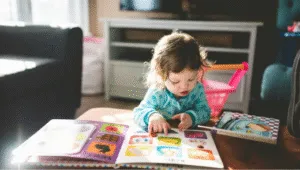
Word Count Expectations for 18-Month-Olds
How many words does an 18-month-old know becomes less about hitting exact numbers and more about recognizing that language development milestones exist on a bell curve distribution, where individual differences trump standardized expectations. From professional experience working with toddlers, I’ve observed that while typical language milestones suggest between 20 to 50 words at this age, the reality involves children who develop at their own pace—some start speaking earlier, others take more time before their skills blossom.
What matters isn’t obsessing over how many words does an 18-month-oldshould know, but rather noticing whether they’re actively trying to communicate through any means—sounds, gestures, pointing, waving—because language isn’t just verbal output. The range feels broader when you factor in bilingual environments where children exposed to multiple languages at a young age may reach certain milestones in each language slightly later, yet develop impressive language-learning abilities in the long run.
Understanding how many words does an 18-month-old know requires looking beyond the average of around 20 words to appreciate that every child follows a unique trajectory influenced by factors like exposure to language, interaction quality, temperament, personality, cognitive development, and even overall health. I’ve worked with families through preschool speech therapy, where one toddler had fewer words but demonstrated strong receptive language—understanding basic instructions like “Pick up the ball” or “Give me the cup“—while another used twenty words yet struggled with comprehension.
How many words does an 18-month-old know also connects to whether they’re using functional vocabulary: people names (mama, dada, siblings’ names), everyday objects (ball, cup, book, car), actions (go, eat, play, sleep), basic needs (milk, juice, cookie, more), and sounds (woof, moo, beep-beep). The key isn’t counting but ensuring your child continues to show progress—that their vocabulary typically expands significantly as frequent positive interactions with caregivers lay the foundation for strong language development through talking, singing, reading, and responding warmly to their attempts.
Listening and Understanding / Receptive Communication
When parents obsess over how many words does an 18-month-old know can say, they often miss the more crucial picture: what their child actually understands. A toddler’s understanding of language far surpasses their verbal output at this stage, and this gap is completely normal. Your little one might only use one or two simple words like “dada” or “milk,” but they’re secretly processing dozens more. Watch how they respond when you give them simple instructions like “come here” or “bring me the cup”—this ability to process what they hear reveals their true language skills are developing robustly behind the scenes. How many words does an 18-month-old know? Children know receptively often reach 50-100 words, even when they’re barely vocalizing ten.
This understanding forms the foundation, linked directly to their cognitive development and how their brain is wiring itself for future speech. Hearing every word you say matters more than forcing them to repeat it back.The concern shifts when an 18-month-old shows zero response to their name, doesn’t point at desired objects when pictures are named, or seems completely disconnected from environmental language around them. Even a 4-year-old not talking but understands everything demonstrates that receptive language can exist independently of expressive output—though by that age, professional evaluation becomes essential.
At 18 months, if your child turns toward you when called, identifies familiar objects like “ball” or “book,” and looks around searching when you ask “where’s the dog?”, their receptive pathways are firing correctly. This internal comprehension isn’t just about words—it includes understanding tone, body language, and gestures that communicate needs before verbal skills catch up. Parents who focus so much on how many words an 18-month-old toddler should produce miss that children are learning through constant exposure to language in their environment.
Talk constantly, narrate your actions throughout the day, label everything from “juice” to “spoon,” and trust that comprehension is building even when speech lags behind. The pediatrician or speech-language pathologist (SLP) becomes your best resource if you’re concerned about whether understanding is genuinely progressing, but remember: receptive language always develops sooner than expressive, and that timeline varies significantly among children based on temperament, hearing health, and individual differences.
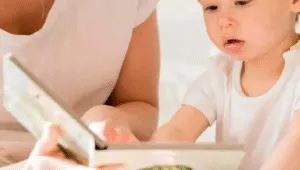
Word Categories
When parents wonder how many words does an 18-month-old know, they’re often surprised to discover it’s not just about the range of vocabulary but the types of words their child actually uses. At 18 months, most toddlers naturally gravitate toward simple, common words that serve immediate needs—objects like “cup,” “ball,” or “spoon,” actions such as “eat” or “go,” and greeting phrases like “hi” or “bye-bye.” These aren’t random selections; kids instinctively learn words that hold a vital role in their daily routine, helping them communicate wants and make their needs known.
The ability to name things they see and use regularly becomes a crucial foundation, whether it’s clothing items, environmental noises like “woof” or “moo,” or even two-word phrases such as “more juice” or “big truck.” This skill typically develops as they connect spoken language with the world around them, though every child’s vocabulary will vary widely based on countless influences. Understanding how many words does an 18-month-old know requires recognizing that children at this age are simultaneously developing multiple categories—receptive language (what they understand) often far exceeds what they can actually say.
A toddler might not verbally label every picture in a book, but they’ll enthusiastically point when objects or pictures are named, demonstrating their blossoming comprehension even before forming actual speech. Parents frequently note their little one can follow instructions like “give me the cup” or respond to questions about “Where’s the teddy bear” during a game of peek-a-boo, proving their understanding extends beyond their expressive words.
The developmental norms suggest that while some toddlers are already combining words into rudimentary sentences like “blue ball” or forming two-word phrases, others remain comfortably within a smaller expressive vocabulary yet still participate actively through gestures, body language, and physical movements. This variation doesn’t necessarily indicate language delays—it’s simply part of the unique language journey each child experiences, influenced by temperament, personality, cognitive skills, and whether they’re in multilingual environments where they might take slightly longer to sort through different linguistic systems but ultimately benefit from richer language learning.
Beginning Phrase Development
- Around 18 months, something remarkable begins to happen in toddlers’ communication patterns—they start putting words together. While many parents might wonder how many words an 18-month-old should know, what’s equally important is recognizing when children begin to combine words into two-word phrases like “more juice” or “go play”.
- This represents an important milestone in speech development, marking the transition from isolated vocabulary to genuine language structure. The ability to link concepts shows cognitive development is progressing beautifully, as your little one learns to express increasingly complex wants and needs.
- Every child develops at their own pace—some outgoing kids might eagerly attempt these phrases while more observant children take slightly longer to verbalize what they understand. Individual differences in temperament and personality play a significant role here, making each language journey wonderfully unique.
- What makes this phase particularly fun is watching how many words does an 18-month-old know. Toddlersexperiment with combining familiar everyday objects with actions—”eat cookie,” “book go,” or my favorite, when they point at pictures and try pairing animal sounds with noises: “woof ball” or “moo play.”
- These attempts, however grammatically imperfect, demonstrate they’re actively learning to connect words with the world around them. Engaging in imaginative play, using gestures and body language, and providing plenty of opportunities to hear and practice new combinations will help facilitate this growth.
- Regular conversations, reading books together, and narrating daily activities during playtime encourage toddlers to participate in language learning. If your child isn’t attempting these phrases yet, focus on responsive interaction—respond warmly when they communicate through sounds or babbling, expand their attempts into full sentences, and remember that blossoming language skills require frequent, interactive engagement rather than passive screen time.
- The key is making talking a natural part of your day, laying the foundation for richer expression ahead. For toddlers needing additional support, incorporating Child Therapy Vestibular Sensory Activities can benefit overall developmental progress while keeping sessions naturally effective.
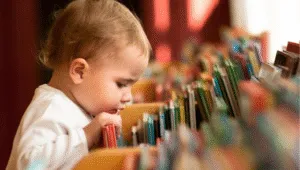 Beginning Phrase Development
Beginning Phrase Development
Elements Affecting Speech Growth
- The question of how many words does an 18-month-old know becomes more complex when you consider the multiple factors at play. Genetics shape the individual differences we see—some children naturally develop language faster than others, and this variation is perfectly normal.
- Environmental stimulation plays an equally crucial role: kids raised in a language-rich environment where parents and caregivers consistently talk, read, and engage with them tend to show broader vocabulary growth. The reality is that language acquisition doesn’t follow a rigid timeline—many children may have more verbal output by their second birthday, while others may have fewer words but excel at receptive language (their ability to understand what’s being said).
- Understanding these developmental norms helps you recognize that asking how many words does an 18-month-old know requires appreciating each child’s unique trajectory. Variation in language skills isn’t cause for immediate concern—rather, it’s knowing when typical milestones are significantly delayed that matters.
- Environmental exposure matters tremendously: toddlers who hear plenty of opportunities for new words through conversation, reading, and interactive play will naturally expand their vocabulary. This learning happens when families provide responsive interaction, where adults respond warmly to a toddler’s attempts at communication, whether through babbles, gestures like pointing and waving, or emerging words.
- The stimulation doesn’t need to be formal—simple narrating of daily activities (“I’m putting on your shoes”), labeling objects during playtime (“Ball go!”), and singing songs all contribute to language development. When wondering how many words does an 18-month-old know, remember that the best predictor isn’t the exact number but whether the child continues progressing, showing interest in communicating, and building their understanding of language.
- It’s okay if your little one isn’t hitting every milestone exactly on time. Every child develops at their own pace, and development follows a wide range. However, if you’re concerned about speech delays, for example, if your child says fewer than expected words, doesn’t imitate sounds or actions, or seems uninterested in communicating, seeking professional advice from a healthcare provider or speech-language pathologist (SLP) can provide reassurance and support. Early intervention is always best, so don’t hesitate to reach out for guidance if something feels off.
Promoting Speech Growth
The question of how many words does an 18-month-old know should know often overshadows a more crucial reality: language doesn’t emerge from passive observation alone. Children who develop robust communication skills aren’t simply exposed to more vocabulary; they’re involved in dynamic, responsive interaction where adults help them decode meaning through physical movements, gestures, and contextual cues. When you engage your child in conversation, even before they’re using complete sentences, you’re not just providing words to remember; you’re teaching them that language serves a purpose.
Regular conversations that include narrating your daily activities—”Let’s go bye-bye to grandma”—create predictable patterns that toddlers can learn to use themselves. This approach works because it helps children understand the way words connect to actions, making abstract sounds suddenly linked to their world. What’s often missed in discussions about how many words does an 18-month-old know is that effective early language learning happens when you meet your child’s unique temperament with tailored strategies. Some children are naturally eager to imitate every sound, while others may have a focus on physical activities like running and climbing rather than verbal experimentation.
Reading books together and encouraging them to try out new words through play becomes more beneficial when you recognize these individual differences. The key isn’t forcing a child who’s interested in movement to sit still for language drills; it’s helping them learn that communication can happen anywhere. Talking to them about what they’re doing, using repetitive phrases during playtime, and responding enthusiastically when they attempt to communicate through babbling or gestures builds a foundation where language development feels natural. Parents who continue to offer these opportunities throughout the day without anxiety about hitting every milestone exactly on time facilitate more authentic growth than those fixated solely on how many words their 18-month-old can recite.
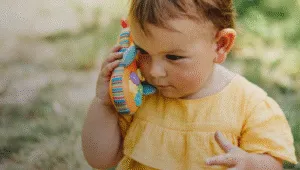
When to Consult an Expert / Indicators of Possible Delays
- While normal development follows a bell curve, certain signs may indicate the need for evaluation. Consider seeking advice if your child doesn’t point at pictures when named, doesn’t imitate sounds or actions, or seems uninterested in communicating. Early intervention can make a significant difference. A speech therapist plays a crucial role in assessing and providing strategies to support your child’s growth. Speech-language pathologists assess communication patterns and provide targeted interventions.
- Speech therapists are essential in supporting families, helping them recognize developmental patterns and providing guidance to foster progress. If your child doesn’t point or engage, consult a professional for evaluation—this can be beneficial for addressing language delays.
- When parents ask “how many words does an 18-month-old know,” they’re often saying things like “remember, at this age my child isn’t saying any words” or “not using gestures like pointing at 12 months.” It’s a good idea to review a comprehensive list of communication skills to determine what your child isn’t doing.
- Here are practical things that have worked for addressing a second question many parents raise: has your child’s hearing been checked? This is often the first step in any evaluation process, ideally during the next well-child visit, to ensure they’re getting on track.
- Sharing this information as a sort of checklist helps clarify concerns—some might disagree, but honestly, I’ve seen cases where a child was barely speaking (one mom didn’t have even five words at this age), and we used developmental checklists as a guide to work on specific areas. We started with one or two tasks, and once they were mastered, we moved on to the next.
- The child got caught up by age 2 1/2 and was on track—it took a couple of months, but it happened. If your child hasn’t mastered certain skills or is still developing foundational abilities, professional help can bring them closer to confidently using words.
What Typically Causes Speech Delays?
The evaluation process often reveals that hearing problems stand as the primary culprit behind language delays in young children. When a child’s hearing isn’t functioning optimally, their ability to perceive and process sounds accurately becomes compromised, directly impacting how they learn to communicate. Speech-language pathologists routinely emphasize getting a child’s hearing checked as the first step during any assessment, since even mild hearing loss can significantly alter how a child develops their verbal language skills.
This is why parents and caregivers should consult their doctor at the next well-child visit if they notice their little one isn’t saying words they’d expect, or if the toddler isn’t attempting to communicate through typical means. Early intervention makes a significant difference, and speech therapists are essential in providing targeted strategies that help children get back on track with their language development. Mobile occupational therapy services can complement this approach, offering convenient support that reaches families in their homes, making it easier to work on skills within familiar environments.
The comprehensive nature of professional evaluation ensures nothing gets missed—whether it’s cognitive development concerns, environmental factors, or physical issues affecting the child’s focus and energy levels. Beyond hearing issues, speech delays can stem from limited exposure to language-rich environments where frequent interaction with others would typically occur. A child needs consistent opportunities to hear and use new words, yet some children simply don’t receive adequate stimulation to encourage their language acquisition.
Individual differences in personality, strengths, and even genetics play a role in how quickly a toddler begins using words and forming basic phrases. Mobile occupational therapy professionals recognize these unique patterns and can provide personalized interventions that address each child’s specific communication challenge. Speech-language pathologists who conduct thorough assessments don’t just focus on what the child says—they examine whether the child understands instructions, imitates actions and sounds, points to objects or pictures when named, and shows interest in communicating through gestures.
When a child seems uninterested in engaging with language altogether, or when they’re not using pointing effectively by 12 months, these become signs that seeking advice from a healthcare provider or speech therapist would be beneficial. The goal isn’t to worry excessively but rather to take the next steps that ensure the child receives whatever support their language journey requires to continue progressing toward their full potential.
FAQS
Q: What’s the actual vocabulary range we should expect at 18 months?
The range can vary widely – some toddlers regularly use just a handful of words, while others might surprise you with more words than you’d note. What’s common is that development follows its own timeline.
Q: Which types of words do 18-month-olds typically master first?
People’s names like Mama and familiar names usually arrive early, followed by Actions such as sleep, Basic Needs requests, and Sounds and Animal Noises – think Beep-beep for cars or animal calls that make language learning fun as they explore their world.
Q: How does understanding language differ from speaking it?
Understanding Language / Receptive Language is vital – your little one might be able to follow simple requests even when they’re not yet speaking. Watch how they respond during a game like peek-a-boo or when you ask, “Where’s the teddy bear?” Their blossoming comprehension reveals much about language development.
Q: When should I actually seek professional guidance?
Consider seeking advice if your child doesn’t imitate sounds, isn’t doing basic things like pointing, or if certain signs indicate concerns about normal development. A speech-language pathologist or pediatrician can provide reassurance, assess where they are, and offer guidance on progress – it’s a good idea to get support rather than wait.
Q: What influences how quickly children develop their vocabulary?
Multiple key influences shape language acquisition – Good hearing naturally allows clearer Exposure to Language, while Interaction through engaging conversations and activities helps stimulate cognitive skills. Personality, Multilingual Environments, and how often they hear language all influence development, though some children take slightly longer to start expressing what they already understand.

